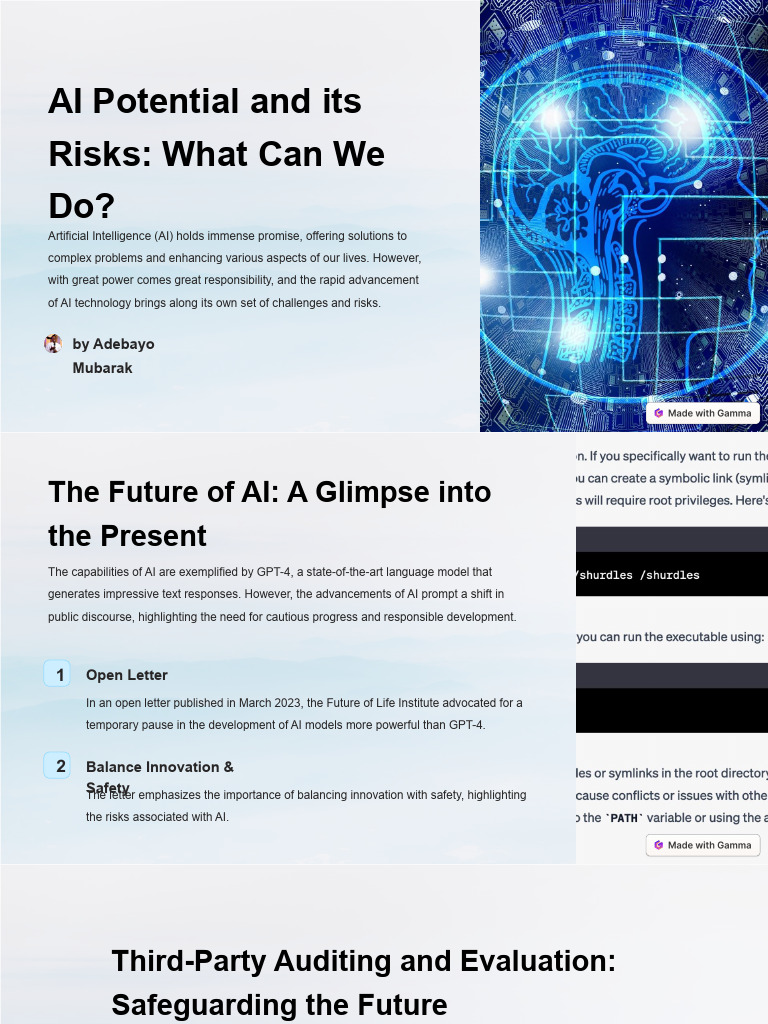The Surveillance Potential Of AI Therapy: A Necessary Concern

Table of Contents
Data Collection and Privacy in AI Therapy Apps
The allure of convenient, accessible mental healthcare through AI therapy apps is undeniable. However, this convenience comes at a cost: the extensive collection of user data. Understanding the extent of this data collection and the security measures in place is crucial to addressing concerns about AI therapy surveillance.
The Extent of Data Collected
AI therapy apps collect a surprising amount of sensitive information. This includes:
- Voice recordings: Detailed transcripts of therapy sessions provide rich data for sentiment analysis and pattern recognition.
- Text messages: Every interaction between the user and the app is logged, offering insights into mental state and emotional fluctuations.
- Location data: Some apps track user location, potentially revealing sensitive information about their movements and lifestyle.
- Biometric data: Apps may collect data such as heart rate variability or sleep patterns, providing further insights into the user's physical and mental health.
This data is used for various purposes, including sentiment analysis to gauge emotional state, identifying behavioral patterns to personalize treatment, and improving the algorithms themselves. However, the potential for data breaches and unauthorized access to this sensitive information is a significant concern related to AI data security and user data protection. The lack of transparency regarding data usage policies in many apps further exacerbates these concerns.
Data Storage and Security
The security measures implemented by AI therapy apps vary widely. While some utilize robust data encryption methods like AES-256, others fall short, leaving user data vulnerable.
- Data encryption: The strength and implementation of encryption protocols are critical. While AES-256 is considered strong, proper key management is essential.
- Cloud storage: Storing sensitive data in the cloud introduces risks, including potential vulnerabilities in the cloud provider's security infrastructure.
- Standardized security protocols: The absence of standardized security protocols across the industry makes it difficult to assess and compare the security measures of different AI therapy apps. This lack of consistency is a major factor contributing to AI therapy surveillance risks.
Potential for Algorithmic Bias and Discrimination
The algorithms driving AI therapy apps are trained on vast datasets. If these datasets reflect existing societal biases, the resulting algorithms can perpetuate and even amplify those biases, leading to discriminatory outcomes. This is a critical aspect of AI therapy surveillance, as it can lead to unequal access to care.
Biases Embedded in AI Algorithms
Algorithmic bias in AI therapy can manifest in various ways:
- Unequal access to care: Biases in the algorithms might lead to certain demographics being deemed "less suitable" for AI-based therapy, thus denying them access to potentially beneficial services.
- Misdiagnosis or inappropriate treatment: Biases in training data can lead to inaccurate assessments and inappropriate treatment recommendations, disproportionately affecting specific groups.
- Reinforcement of harmful stereotypes: The AI system might inadvertently reinforce existing harmful stereotypes through its interactions with users.
The lack of diversity in AI development teams contributes to these biases. A more diverse team would be better positioned to identify and mitigate bias in AI algorithms. The complex nature of these algorithms also makes detecting and mitigating bias a significant challenge.
Impact on Vulnerable Populations
Algorithmic bias disproportionately affects vulnerable populations, widening existing health disparities.
- Marginalized communities: Individuals from marginalized communities might experience misdiagnosis, inadequate treatment, or outright exclusion from AI-based therapy services.
- Culturally competent AI: The lack of culturally competent AI systems can further exacerbate these issues, as algorithms may not adequately account for cultural differences in communication styles and mental health expressions.
- Ethical responsibility: Developers have an ethical responsibility to actively address bias in their algorithms and ensure equitable access to AI-based mental healthcare. This is key to preventing AI therapy surveillance from disproportionately targeting vulnerable groups.
Lack of Regulation and Oversight
The rapid advancement of AI in healthcare outpaces the development of robust regulatory frameworks. This lack of regulation and oversight is a significant concern regarding AI therapy surveillance.
The Regulatory Landscape
Current regulations, such as HIPAA in the US and GDPR in Europe, offer some protection but are not specifically designed for the unique challenges posed by AI in mental healthcare.
- Applicability of existing regulations: Existing data protection laws often struggle to keep pace with the ever-evolving landscape of AI technologies.
- Need for stronger regulations: More comprehensive regulations are needed to explicitly address data privacy, security, algorithmic bias, and transparency in AI therapy apps.
- Challenges in regulation: The rapid pace of technological advancements makes it difficult for regulators to keep up, creating a regulatory gap that needs to be addressed.
The Need for Stronger Ethical Guidelines
The absence of widely accepted ethical guidelines further contributes to the risk of AI therapy surveillance.
- Ethical guidelines for data privacy: Clear guidelines should define acceptable data collection practices, data security measures, and data usage transparency.
- Addressing algorithmic bias: Ethical guidelines should mandate robust methods for identifying and mitigating algorithmic bias, ensuring fairness and equity in access to AI-based mental healthcare.
- Public engagement and debate: Open discussions involving ethicists, developers, policymakers, and the public are crucial in establishing robust ethical standards. This is vital for preventing the misuse of AI in mental healthcare settings and mitigating the risks of AI therapy surveillance.
Conclusion
The potential for AI therapy surveillance is a serious concern, encompassing data privacy violations, algorithmic bias, and a lack of regulatory oversight. The extensive data collection practices of AI therapy apps, coupled with potential security vulnerabilities and the inherent risk of algorithmic bias, necessitate a proactive approach to mitigating these risks. Addressing “AI Therapy Surveillance” requires stronger data protection laws, transparent data usage policies, robust security measures, and ethical guidelines that prioritize fairness and equity. We must proactively address the surveillance potential of AI therapy to ensure that this promising technology benefits everyone safely and equitably. Let's advocate for responsible AI development and implementation in mental healthcare to prevent the misuse of this powerful technology.

Featured Posts
-
 Microsoft Stock Weathering The Tariff Storm
May 15, 2025
Microsoft Stock Weathering The Tariff Storm
May 15, 2025 -
 Decoding Gorklon Rust Elon Musks Latest X Branding Move
May 15, 2025
Decoding Gorklon Rust Elon Musks Latest X Branding Move
May 15, 2025 -
 Analyzing Trumps Assertion On Egg Prices An Economic Perspective
May 15, 2025
Analyzing Trumps Assertion On Egg Prices An Economic Perspective
May 15, 2025 -
 Lafc Triumphs Over San Jose Earthquakes Following Key Injury
May 15, 2025
Lafc Triumphs Over San Jose Earthquakes Following Key Injury
May 15, 2025 -
 Nba Champions Quiz Name The 2 Scorers Since 1977
May 15, 2025
Nba Champions Quiz Name The 2 Scorers Since 1977
May 15, 2025
